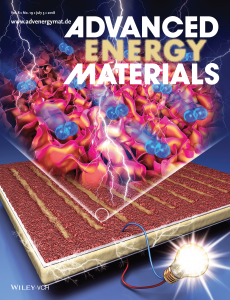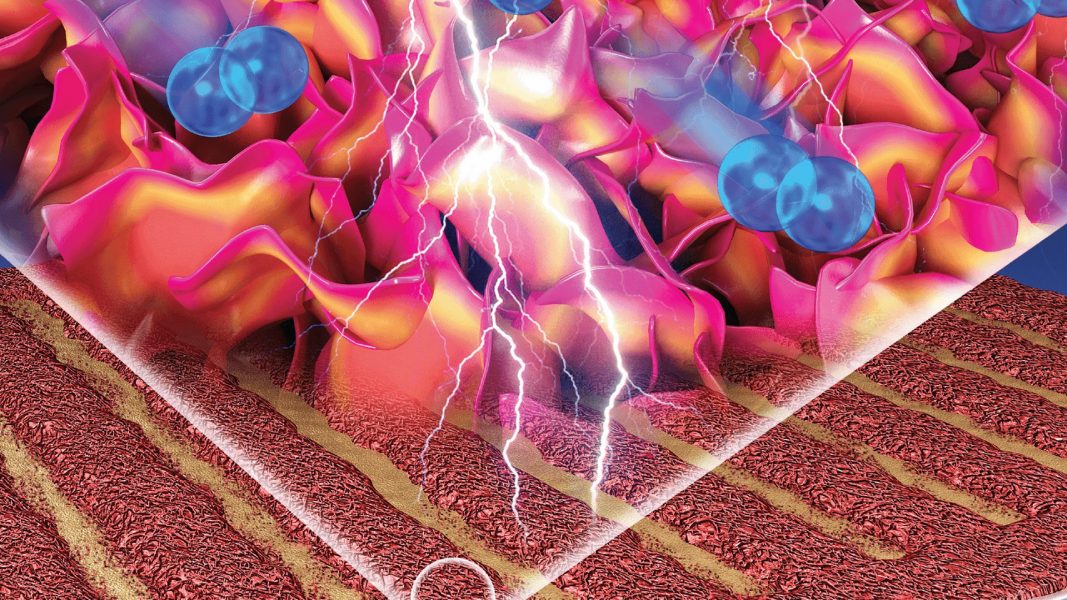Clean electricity generation can be achieved using thin-film-based solid oxide fuel cells (TF-SOFCs). Converting the chemical energy of various fuels to electricity, TF-SOFCs can be applied to small- and large-scale power generation, such as in portable devices and vehicles. Electrode design, however, must be improved to enhance device performance.
In an article in Advanced Energy Materials, Prof. WooChul Jung and colleagues from Korea Advanced Institute of Science and Technology apply an overcoat of PCO ((Pr,Ce)O2−δ) to a platinum thin-film electrode, which is verified as an oxygen electrode in a thin-film-based solid oxide fuel cell.

Advanced Energy Materials inside front cover design for Volume 8, Issue 19.
A quick and simple cathodic electrochemical deposition process was used to overcoat platinum with PCO atop a yttria-stabilized ZrO2 (YSZ) single-crystal substrate. Nanostructured oxide layers were formed uniformly all over the metal, introducing double- and triple-phase-boundary sites for the oxygen reduction reaction (ORR).
At low temperatures, the activation energy of the ORR is much smaller for the PCO-coated Pt electrodes than bare Pt electrodes, indicating that the ORR takes place predominantly on the surface of the PCO.
The electrode was examined as an oxygen electrode for TF-SOFCs, which was shown to dramatically improve the oxygen reduction reaction rate, while retaining the architectural integrity of the electrode at high operating temperatures. Overall, the electrode resistance was shown to reduce by more than 1000 times at 500 °C in air, providing direct evidence of the potential for these electrodes to be used in high-temperature electrochemical cells.
To find out more about PCO-overcoated Pt thin-film electrodes for TF-SOFCs, please visit the Advanced Energy Materials homepage.

















